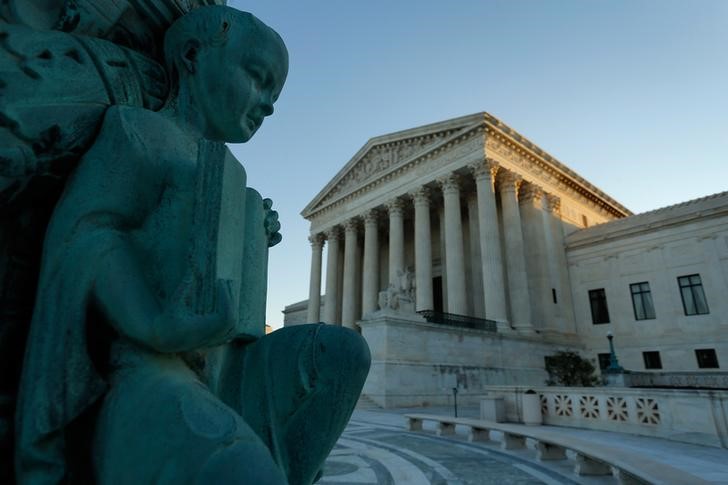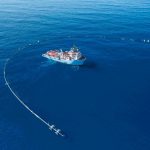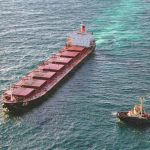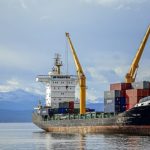Discovery processes under United States federal law allow for broad requests for documents that may be relevant to a commercial dispute. Documents include such items as e-mail and requests can require parties to provide years of correspondence. Discovery rules also provide for depositions where persons who may have information relevant to the dispute are questioned under oath.
Section 1782 of 28 U.S. Code governs a federal district court’s authority to provide discovery assistance for proceedings in foreign and international tribunals. Section 1782 requires an applicant to satisfy three statutory factors:
1. the person from whom discovery is sought resides or is found in the district to which the applicant is made;
2. the discovery is for use in a foreign proceeding before a foreign or international tribunal; and
3. the application is made by an interested person.
“Person” in the context of Section 1782 includes corporations. Since the majority of charterparties call for London arbitration, Section 1782 raised the possibility that in a charter party dispute with a US entity, the requesting party could apply to the appropriate federal district court for use of the broad discovery rules to obtain documents and deposition testimony for use in the London arbitration.
Before the US Supreme Court took up the issue, the Second, Fifth and Seventh Circuit Courts of Appeal had ruled that Section 1782 did not apply to a foreign private arbitration. The Fourth and Sixth Circuit Courts of Appeal ruled that a foreign commercial arbitration did qualify and allowed access to the discovery rules. Given the split of authority, the Supreme Court granted certiorari to hear the case Servotronics, Inc. v. Rolls-Royce PLC, on appeal from the 7th Circuit.
Servotronics, Inc. v. Rolls-Royce PLC –background
The disputed legal issues in Servotronics centered on the second Section 1782 statutory factor, and in particular, whether a private foreign arbitration constituted a “proceeding in a foreign or international tribunal.”
The background for the Servotronics case is an indemnification dispute over responsibility for losses incurred when an aircraft engine manufactured by respondent Rolls-Royce PLC (Rolls-Royce) caught fire during testing, which damaged the aircraft owned by the respondent, The Boeing Company (Boeing). Applicant Servotronics Inc. (Servotronics) manufactured the engine valve which contributed to the fire.
Boeing demanded repayment from Rolls-Royce, and the parties settled for USD 12 million. Rolls-Royce sought indemnification from Servotronics. The long-term agreement between these parties required any dispute to be submitted to binding arbitration in England under the rules of the Chartered Institute of Arbitrators (the Institute). After failing to resolve the dispute informally, Rolls-Royce filed a private arbitration (the Arbitration) with the Institute. During the pendency of the Arbitration, Servotronics filed an ex parte Section 1782 application in the US District Court for the Northern District of Illinois seeking authority to issue a subpoena compelling Boeing to produce documents for use in the Arbitration. After initially granting Servotronics’ application, the district court reversed course and issued an order granting the motion of Rolls-Royce (supported by Boeing) to vacate its previous order and quash the subpoena to Boeing.
Servotronics appealed to the US Court of Appeals for the Seventh Circuit, which, in an issue of first impression in that circuit, focused on whether the Institute constituted a “tribunal” under Section 1782. The Seventh Circuit evaluated the statutory and dictionary definition of “tribunal,” the statutory context, a potential conflict with the Federal Arbitration Act (FAA), the legislative history of Section 1782 and the Intel decision in holding that the Institute was not a “tribunal” under Section 1782. First, the court concluded that in “both common and legal parlance,” the phrase “foreign and international tribunal” could be understood to include state-sponsored tribunals and private arbitral panels, so both interpretations were plausible and did not resolve the issue.
Second, in reviewing the “statutory context” – namely, the instructions to a congressional study group in proposing revisions to Section 1782, the use of the term “foreign or international tribunal” in related statutes concerning service of process in foreign litigation (28 U.S.C. § 1696) and letters rogatory (28 U.S.C. § 1781), and the use of “tribunal” in Section 1782 – the court held that reading Section 1782 as a “coherent whole suggests that a more limited reading of § 1782(a) is probably the correct one[.]”
Third, the court held that the narrower understanding of “tribunal” foreclosed a “serious” conflict with the FAA. The court contrasted the narrower discovery assistance rights in domestic arbitrations under the FAA with the expansive rights afforded a party seeking Section 1782 discovery. The court found it “hard to conjure a rationale” for affording parties to private foreign arbitrations such far-reaching discovery assistance while precluding domestic parties from this assistance.
Finally, the court held that the Supreme Court’s reference in Intel to a law-review article that defined “tribunal” under Section 1782 to include “arbitral tribunals” did not ipso facto include private foreign arbitral tribunals within the purview of Section 1782. The court considered Servotronics’ reliance to be “misplaced” because there was no indication that the Supreme Court, by “quoting a law-review article in a passing parenthetical, was signalling its view that § 1782(a) authorizes district courts to provide discovery assistance in private foreign arbitrations.”
The Fourth Circuit, in another application brought by Servotronics against Boeing, disagreed with the Seventh Circuit, holding that a contractual arbitration is the “product of government-conferred authority” in the United Kingdom and the United States, and thus a “tribunal.” The Seventh Circuit considered this “view mistaken” on grounds that the “source of a private arbitral panel’s adjudicative authority is found in the parties’ contract, not a governmental grant of power.”
One of the functions of the US Supreme Court in exercising its discretion to grant certiorari in a particular case is to resolve difference in interpretation of federal law between the various district courts of appeal. Given the differences between the Fourth Circuit and Seventh Circuit in the interpretation of Section 1782, the issue was ripe for review.
The Supreme Court ruling
The US Supreme Court issued a unanimous decision on June 13, 2022, holding that only a governmental or intergovernmental adjudicative body constitutes a “foreign or international tribunal” under Section 1782. It held that Section 1782 did not apply to a commercial international arbitration or an United Nations Commission on International Trade Law (UNCITRAL) investor-state arbitration. Only a governmental or intergovernmental adjudicative body constitutes a “foreign or international tribunal” under Section 1782. According to the Supreme Court, ‘foreign tribunal’ more naturally refers to a tribunal belonging to a foreign nation than to a tribunal that is simply located in a foreign nation. And for a tribunal to belong to a foreign nation, the tribunal must possess sovereign authority conferred by that nation.
Gard comment
Many if not most charterparties provide for English law and London arbitration. The Servotronics ruling forecloses any opportunity for use of the broad US discovery process in charterparty disputes involving a US entity where the charterparty has stipulated London arbitration. This would also be the case for charterparties stipulating another foreign arbitral forum, such as Singapore.
Historically, it was not uncommon to see charterparties incorporating US law and New York arbitration although this is less common today. Holland and Knight advise that US arbitrations allow for discovery within the rules of the specific arbitral organization such as to SMA, AAA, and the ICDR to name the most used arbitral venues by maritime entities. Within the Rules, the arbitrators have considerable discretion in the event the parties cannot agree as to the scope of document disclosures, witness depositions, and the like.
Source: Hellenic Shipping News






